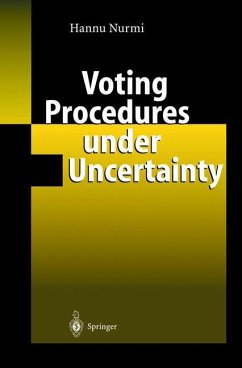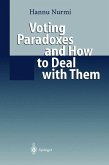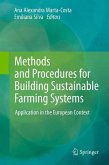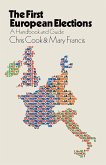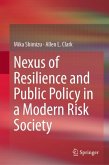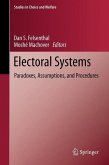This book deals with how uncertainty can be dealt with in models of voting procedures. Using the recent U.S. presidential elections as an example, it demonstrates the extremely large variation in voter opinions that would have resulted in the same observed outcome. Another case discussed to some extent is the vote in German Bundestag that resulted in the transfer of government and parliament from Bonn to Berlin. Also this vote as well as the 2001 British parliamentary elections exhibit a high degree of procedure dependence of outcomes. It turns out that differences in voting outcomes can be explained by differences in the description of consensus states and ways in measuring preferences distances.
We live in an uncertain world, is a truism most of us hear more often than we would like. What one usually means to say by this is that we do not know what will happen in the future. Since changes, even major ones, have occurred in the past, it is possible that they will occur again in the future. In politics institutions are ways of coping with continuity and change. In democratic systems the electoral institutions provide ways of peaceful adjustment to changes in popular opinions. This book is about uncertainty as it pertains to electoral institutions. We shall deal with the ways in which analytic models are capable of taking into account voter uncertainty, ignorance and incompetence. We shall also discuss how uncertainty pertains to electoral outcomes. Given voter opinions, there is often a wide variation in the possible electoral outcomes. This could be called procedure-dependence of outcomes. Its existence shows that uncertainty is not something that can characterize only future events. It can pertain to past ones as well. This work is part of the Democracy and Constitution Project of Center for Business and Policy Studies (SNS). The idea of writing a book on the performance of voting procedures under uncertain cir cumstances came up in my correspondence with Dr. Per Molander of SNS a few years ago.
We live in an uncertain world, is a truism most of us hear more often than we would like. What one usually means to say by this is that we do not know what will happen in the future. Since changes, even major ones, have occurred in the past, it is possible that they will occur again in the future. In politics institutions are ways of coping with continuity and change. In democratic systems the electoral institutions provide ways of peaceful adjustment to changes in popular opinions. This book is about uncertainty as it pertains to electoral institutions. We shall deal with the ways in which analytic models are capable of taking into account voter uncertainty, ignorance and incompetence. We shall also discuss how uncertainty pertains to electoral outcomes. Given voter opinions, there is often a wide variation in the possible electoral outcomes. This could be called procedure-dependence of outcomes. Its existence shows that uncertainty is not something that can characterize only future events. It can pertain to past ones as well. This work is part of the Democracy and Constitution Project of Center for Business and Policy Studies (SNS). The idea of writing a book on the performance of voting procedures under uncertain cir cumstances came up in my correspondence with Dr. Per Molander of SNS a few years ago.
From the reviews: "The main objective of Voting Procedures under Uncertainty is to clarify how uncertainty pertains to the performance of voting procedures. This significant task is successfully undertaken ... . this book is a useful, refreshing and challenging reading for students and researchers of collective decision making." (S. Nitzan, Journal of Economics, Vol. 80 (3), 2003) "For the person interested in a 'reader friendly' introduction to the mathematics of voting theory, an outline of some of the more recent contributions to this area, or a reference book with references to the main results, I highly recommend Nurmi's book." (Donald G. Saari, Mathematical Reviews, 2004 d) "The author considers the impact of various types of uncertainty on social choice theory, and especially voting theory. ... The explanations are clear and accompanied by either simple theoretical examples or ones drawn from recent political experience. The book contains a wealth of information for the interested reader." (Duncan J. Melville, Zentralblatt MATH, Vol. 1018, 2003)

